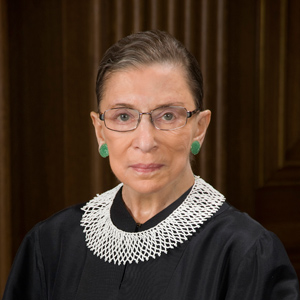Ginsburg talks travel ban, death penalty; says gerrymandering case may be 'most important' of term

Supreme Court Justice Ruth Bader Ginsburg
Justice Ruth Bader Ginsburg did not mention President Donald Trump at recent law school appearances, but she did talk about the Supreme Court’s latest travel ban order while also commenting on capital punishment and the upcoming term.
Ginsburg did not break her pledge to be more circumspect in her comments about Trump, “but she remains blunt and candid,” the New York Times reports in a Sidebar article.
In a July 21 appearance at Duke University School of Law, Ginsburg commented on the Supreme Court’s order two days earlier that exempted additional people, including grandparents, from the travel ban, according to the Times story.
“Just this week, we clarified that closely related persons include grandparents,” Ginsburg said. “We decided that the government had been too restrictive in what family relationships qualify as close.”
Ginsburg also said a gerrymandering case on the docket, Gill v. Whitford, is “perhaps the most important grant so far.” The case considers the constitutionality of gerrymandering intended to give an advantage to a political party.
She also talked about other pending cases, including ones on cellphone privacy and the right of a Christian baker to refuse to make a wedding cake for a gay couple. “One can safely predict that next term will be a momentous one,” Ginsburg said.
In another appearance a few days later, at George Washington University Law School, Ginsburg was asked about the future of the death penalty. “We may see an end to capital punishment by attrition,” she said, “as there are fewer and fewer executions.”



